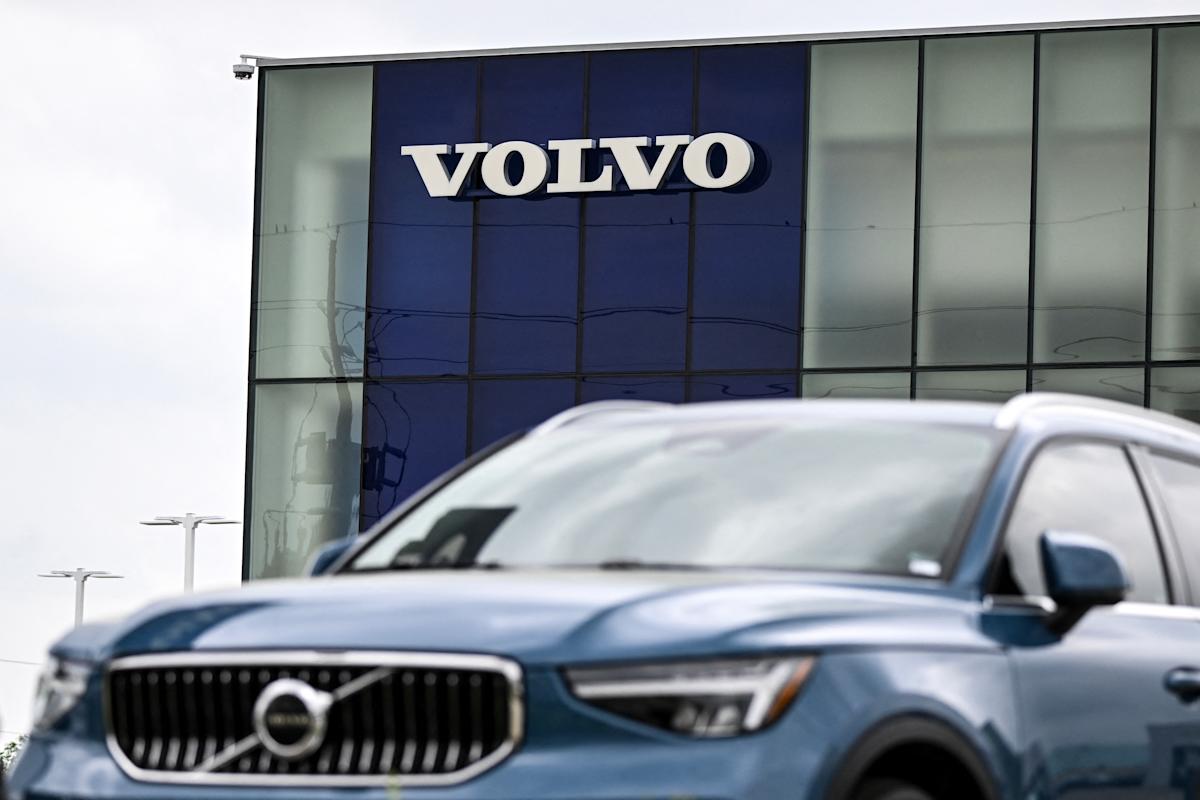Volvo stock jumps on expanded US production, new hybrid model to counter tariffs
Sweden’s Volvo Cars (VOLCAR-B.ST) is expanding production at its US plant in a move to localize production, deflect tariffs, and build more cars that appeal to buyers in one of its biggest markets.
Volvo, wholly owned by China’s Geely, announced on Tuesday that it would bring a fourth vehicle to its production facility located in Ridgeville, S.C. — a next-generation hybrid model designed to meet the “specific demands” of the US market.
Volvo offered no details of the new vehicle, but others have surmised it will be a large crossover SUV of some sort. Volvo stock trading in Sweden jumped over 3%.
This summer, Volvo announced that it would bring its bestselling XC60 midsize SUV to the South Carolina production line starting in late 2026. The company currently builds the XC60 at its plant in Gothenburg, Sweden.
The XC60 is an important car for Volvo stateside. The company has sold over 27,000 XC60s in the US in the first eight months of 2025, an increase of almost 20% year over year.
It currently produces the fully electric Volvo EX90 SUV, as well as its sister car, the Polestar 3, at the South Carolina plant, which has installed production capacity of 150,000 cars per year.
Altogether, Volvo’s investment at its US plant stands at $1.3 billion.
“Our investment plans once again reinforce our long-term commitment to the US market and our manufacturing operations in South Carolina,” said Volvo Cars CEO Håkan Samuelsson in a statement. Samuelsson, who led Volvo from 2012 to 2022, replaced prior CEO Jim Rowan in March of this year.
In addition to Gothenburg and Ridgeville, Volvo’s has auto production plants in Chengdu, Daqing, and Taizhou in China, as well as in Ghent, Belgium.
Volvo said its regionalization efforts allow the company to “better meet” the needs of its customers. But the imposition of President Trump’s tariffs on global imports is the real story, and building in the US is paramount.
“The tariffs have accelerated this process, it would be fair to admit that,” Samuelsson said in an interview with the New York Times regarding expanding its US manufacturing footprint.
That’s because cars imported from Sweden and the EU will eventually face 15% tariffs, an improvement from the current 27.5% rate, but the deal is currently tentative.
Importing vehicles from its China plants, where the entry-level EX30 EV is produced, is a non-starter with 100% tariffs for Chinese autos in place. Volvo moved production of its EX30 from China to Ghent in response.
Polestar stopped selling its China-made Polestar 2 sedan in the US earlier this year.



Leave a Comment
Your email address will not be published. Required fields are marked *